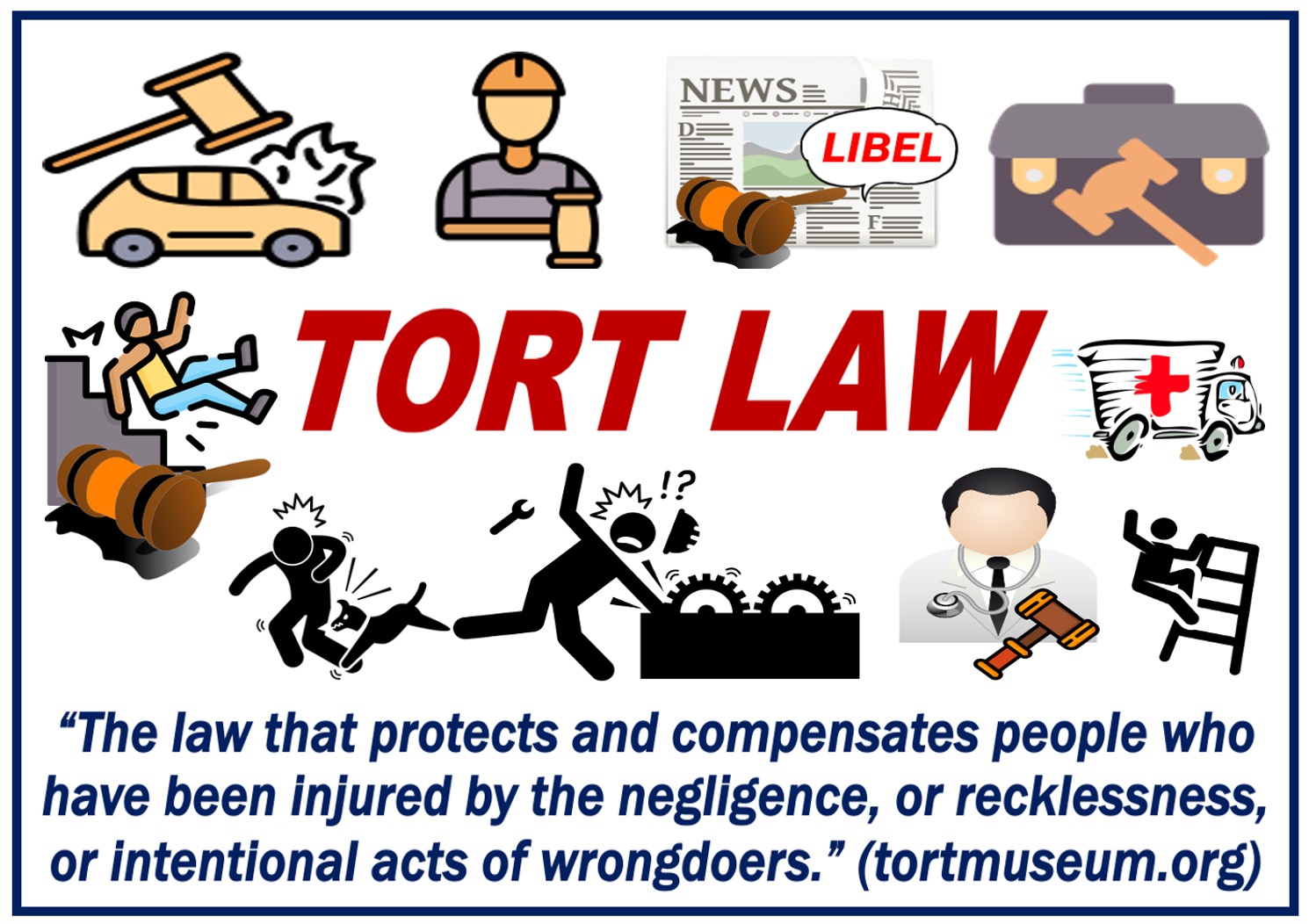What is a tort?
A tort is a civil wrong that causes a claimant to suffer loss or harm, resulting in the perpetrator of the tortious act facing legal liability. The main goals of tort law are to prevent future occurrences of the same harm and to compensate harmed parties for losses they have suffered.
Key elements of a tort
-
Duty
The existence of a legal duty from the defendant to the plaintiff.
-
Breach
A breach of that duty
-
Causation
A causal link between the breach of duty and the harm suffered by the plaintiff.
-
Damage
As a result, the plaintiff experienced actual loss or damage.
Types of torts
There are several types, including:
Failure to exercise the care that a reasonably prudent person would exercise under similar circumstances.
-
Intentional torts
Actions deliberately undertaken to cause harm, including assault, battery, and defamation.
-
Strict liability
Liability that does not depend on proven negligence or intent to harm, typically arising in cases involving inherently dangerous activities or defective products.

Differentiating Torts from Other Forms of Liability
“Torts are distinguishable from crimes, which are wrongs against the state or society at large. The main purpose of criminal liability is to enforce public justice. In contrast, tort law addresses private wrongs and has a central purpose of compensating the victim rather than punishing the wrongdoer.”
Examples of tort cases
-
Personal injury
Car accidents, slip and fall incidents, sports incidents, etc.
-
Medical malpractice
This case is where a healthcare professional deviates from from the standards in their profession, which may cause injury and maybe even death to a patient.
-
Defamation
Harm to a person’s reputation by libel or slander. In defamation law, “slander” refers to harmful statements made verbally, while “libel” refers to harmful statements made in written form.
Solutions to torts
The main solution in tort law is financial compensation, or damages paid to the injured party. There are also others, such as:
-
Compensatory damages
Intended to compensate the plaintiff for the harm suffered.
-
Punitive damages
Aimed at punishing the defendant for harmful behavior and deterring similar future behavior.
Importance of tort law
Tort law is very important for many reasons:
-
Accountability
It ensures that individuals and organizations are held accountable for any harm they cause.
-
Prevention
Acting as a disincentive, the law discourages bad behavior.
-
Justice for victims
It provides a legal pathway for victims to receive compensation.
Challenges in tort law
There are several challenges an individual may encounter in tort law, including:
-
Proving fault
The plaintiff must prove that the defendant was at fault.
-
Complexity
Cases may be complex, often necessitating detailed evidence and expert testimony.
-
Cost and time
Litigation can be costly and time-consuming for everyone involved.
Written by Nicolas Perez Diaz

